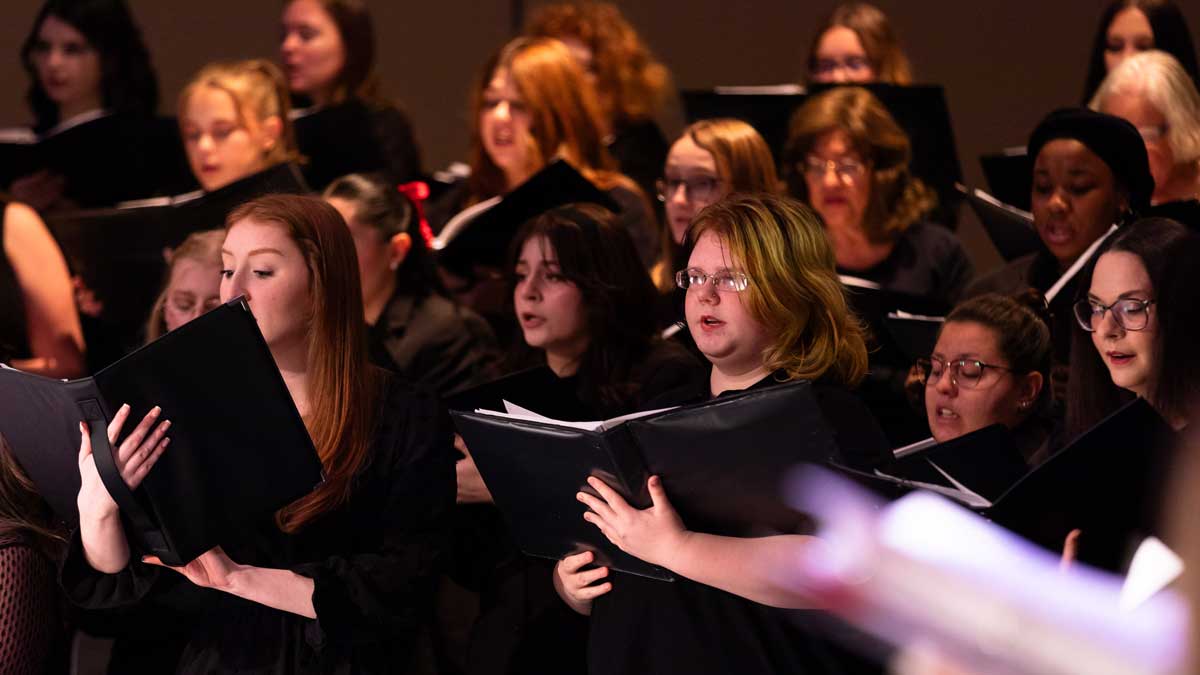
April 29, 2024
‘Parallels’ to feature requiem, folksongs at SIU’s Shryock Auditorium April 30
CARBONDALE, Ill. — Southern Illinois University Carbondale’s Choral Union, Concert Choir and Chamber Orchestra will showcase their talents on Tuesday, April 30, in Shryock Auditorium.
“Parallels,” featuring French composer Gabriel Fauré’s “Requiem” and folksongs collected by English musician Cecil Sharp, will be performed at 7 p.m. Admission is free, and the performance is open to the public.
Susan Davenport, professor and director of choral activities in the School of Music, said Sharp (1859-1924) was collecting the folksongs at the same time Fauré (1845-1924) composed his requiem. To her knowledge, the two men never met, but Davenport “found it interesting that two such diverse kinds of music were being performed at the same time.”
The first half of the concert features the contrasting sound of folksongs from the British Isles “that will evoke the sounds of everyday life.” The choir will be accompanied by Jiyeon Lee, collaborative pianist in the School of Music. Graduate students Savannah Fallis from Corbin, Kentucky; Carley Jo Goggans from Siloam Springs, Arkansas, and Mason Rice from Manchester, Kentucky, will conduct. The requiem, conducted by Davenport, will feature a choir of 100 singers accompanied by the SIU Chamber Orchestra, along with soloists Emily Black, soprano, of Paducah, Kentucky, and Nyghél Byrd, baritone, a recent SIU Master of Music graduate. Byrd is from Charlotte, North Carolina, and is on the faculty at Southeast Missouri State University.
Davenport said the requiem is a 30-minute work and “is unique in its quiet, restful sound, unlike earlier requiems that focus more on death and judgment.” She noted that Fauré is quoted as saying, “It has been said that my requiem does not express the fear of death, and someone has called it a lullaby of death. But it is thus that I see death: as a happy deliverance, an aspiration towards happiness above, rather than as a painful experience.”
